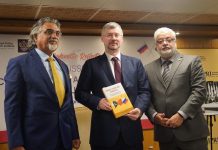ISLAMABAD: Four months since they were set up, none of the 14 election tribunals across the country has adjudicated upon a single complaint against alleged poll rigging in the 2013 general elections. Some 400 such complaints are pending in the tribunals. The law requires the tribunals to decide the cases within 120 days, but this has never happened in the electoral history of the country. This time there were hopes that the cases would be adjudicated upon within the stipulated period as the tribunals comprised retired judges who were to hear the cases on day-to-day basis free from the pressure of routine judicial workload.
Five election tribunals were appointed in Punjab and three each in the other provinces on June 3. These tribunals comprising retired district and sessions judges have been drawing salaries equivalent to BPS-22 officers since May 1, 2013, but have not decided a single case.
Only two of the total three tribunals in Sindh have reached the stage of ordering biometric verification of voters in around eight constituencies in Karachi and Sukkur.
The rest of the 12 tribunals have not even reached the stage where they find it appropriate to order biometric verification of voters in any of the cases assigned to them, by the time they were expected to dispose of all the cases.
At one stage, a decision had been taken to double the number of election tribunals, but keeping in view the fact that the number of complaints was lower than expected, the plan was dropped.
Experts believe that a mechanism must be in place to keep an eye on the pace and progress of the cases pending with the tribunals, so that the ECP could be in a position to appoint more tribunals or transfer cases from one to another, accordingly.
They say that history appears to be repeating itself and all the cases were unlikely to be decided this year.
The tribunal in Karachi was the first to order verification of thumb impressions of voters in two constituencies. The reports of the National Database Registration Authority (Nadra) both in NA-256 and 258 were revealing.
The two reports not only disclosed that the magnetic ink which was supposed to be used to identify the cases of impersonation was somehow not used in both the constituencies, but also pointed out various other irregularities which leave no doubt that the polling staff allowed thousands of people to cast multiple votes.
Informed sources told Dawn that the same tribunal has also sent for biometric verification the case of PS-114 (Karachi), while the Tribunal in Sukkur has sent the cases of two national and three provincial assembly constituencies including NA-202, NA-208, PS-9, PS-23 and PS-31.
Son-in-law of former president Ghulam Ishaq Khan, Irfanullah Khan Marwat (PML-N), had been declared as successful candidate from PS-114 (Karachi) defeating Abdul Rauf Siddiqui of MQM with a margin of around 7000 votes in May 11 polls.
Rauf Siddiqui had filed a complaint against him alleging that Marwat had made entire polling staff of the constituency hostage and rigged the elections, in blatant violation of the election laws.
Dr Muhammad Ibrahim Jatoi of National Peoples Party (NPP) allied with PML-N, had won the election from NA-202 (Shikarpur) fetching 54,890 while his closest rival Aftab Shabaan Mirani of PPP bagged 53,169 votes. Mirani had filed a petition seeking scrutiny of each and every vote cast at 20 polling stations in the constituency to ascertain whether all the ballot papers bore voters’ thumb impressions.
PPP’s Ejaz Hussain Jakhrani had been declared successful from NA-208 (Jacobabad). He clinched 51,025 votes beating Illahi Bux Soomro of PML-N who could get 45,801 votes. The tribunal had directed verification of thumb impressions of voters in 69 polling stations of the constituency on a petition moved by Illahi Bux Soomro.
Speaker Sindh Assembly Agha Siraj Khan Durrani (PPP) had won the election from PS-9 (Shikarpur) securing 32,993 votes. Runner up Zulfikar Ali Kamario of PML-F had challenged results of the elections and sought verification of votes cast at 24 polling stations in the constituency.
Masroor Ahmad Khan Jatoi of NPP had been declared successful from PS-23 (Naushero Feroze) securing 30,594 votes as against 29,027 secured by his closest rival Feroze Ahmad Jamali of PPP.
Dr Muhammad Rafique Banbhan of PML-F had won elections from PS-31 (Khairpur) securing 49,469 votes. Runner-up Zahid Ali Banbhan of PPP could get 36,744 votes.
The notification for the appointment of 14 election tribunals had been issued some three weeks after the May 11 polls. Election tribunals had been constituted earlier but were dissolved even before their jurisdiction could be defined.
The obvious reason for the dissolution was a deviation from the procedure because chief justices of the respective high courts had not been consulted on the matter.
The first objection to the move was raised by the Sindh High Court (SHC) which disbanded tribunals in the province after declaring them unconstitutional. The court reminded the ECP that consultation with the chief justice was essentially required.











